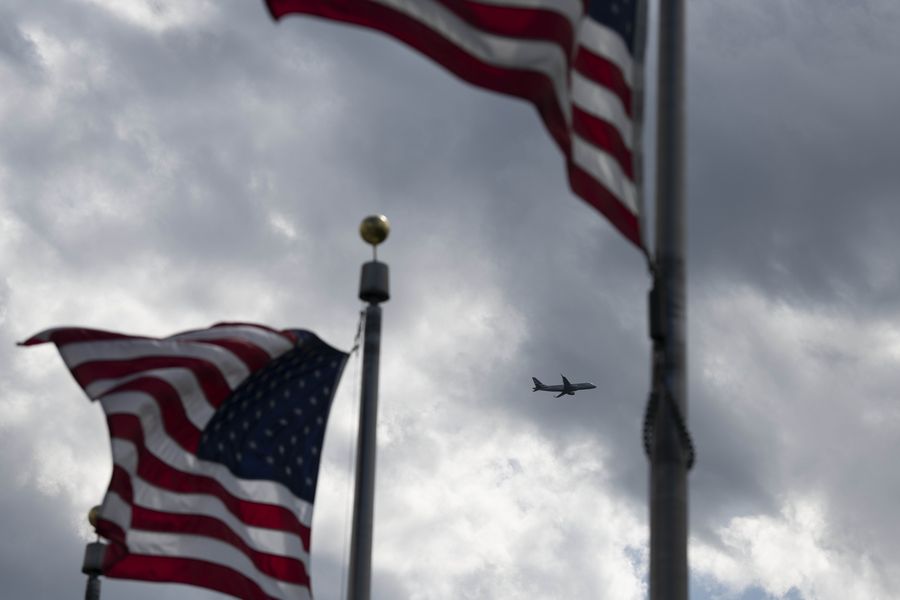Trump using coronavirus to attack immigrants


President Donald Trump has always had an anti-immigrant agenda and has used any excuse to curtail immigration.
Now, with the coronavirus having infected 1.4 million Americans and killed over 80,000, the pandemic is another excuse for him to attack immigrants and students from abroad. His anti-immigrant push targets immigrants from every country in the world, but anti-China hawks in the legislature are encouraging him to add measures specifically attacking Chinese.
On April 22, President Trump announced an executive order banning most people from becoming permanent residents of the United States for the next 60 days. He has the ability to extend the ban for another 60 days, and, judging by his xenophobic bias, it is likely he will do so.
Banning immigration at this time, of course, makes absolutely no sense. The move will not prevent America from becoming a coronavirus hotspot; it already is. The U.S. already blocked travel from China and Europe, so it is redundant to block immigrants. It just means that people's applications will be unnecessarily slowed down and possibly made unable to resume.
Trump had to create a justification to make the ban at least a partially politically and legally feasible. The rhetorical justification is what it often is with anti-immigrant activists: to "protect" the jobs of current citizens. In any case, that justification doesn't make sense.
Immigrants do not deprive anyone of jobs. They add to the economy by consuming – which raises GDP and increases jobs – and they also improve productivity. The only reason one person is hired over another is because either that worker did a better job or because they worked harder and did not demand an exorbitant wage. If some Americans were losing their jobs to newly-arriving Americans, what does that say about the work ethic of those Americans that Trump wants to protect from competition?
The current immigration ban is also completely pointless in addressing the "job protection" justification, because it only blocks people from obtaining green cards, not from obtaining H-1B work visas.
To try to block people from obtaining work visas, the Trump administration began a review of the overall visa procedure. Trump staffers know what kinds of policies the president wants, so they will tailor their review to seek the answers he needs. Already, during the Trump administration, the rate of denial for H-1B visa applications has risen from 10% to 30%.
H-1B visas are important for America's digital economy and innovation. Experts like Everest Group CEO Peter Bendor-Samuel have said that curtailing these visas would prevent American companies from having access to talented workers and would "harm U.S. competitiveness." Economic studies have also shown that increasing the number of H-1B workers actually increases jobs for Americans. They are working in white-collar sectors, especially IT, not in retail or food service, so they would not be competing against people who lost their jobs due to the coronavirus reducing consumption.
Trump's immigration ban hits all countries. For H-1B visas, 2018 statistics published by the U.S. Citizenship and Immigration Services show that workers came from over 150 countries, with most hailing from India, followed by China, Canada, South Korea, the Philippines and Mexico. So, even though Trump is training his fire on China when asked about his failed coronavirus response, people from other countries, including U.S. allies, will also suffer.
The Trump administration is also considering some xenophobic policies aimed particularly at Chinese people. Trump's ally and leading conspiracy theorist in the U.S. Senate, Tom Cotton, has suggested that Chinese students should be banned from studying science and engineering in the United States.
Trump has been talking about restricting Chinese students since 2018, during the height of his trade war, which has led to an increase in visa delays and denials.
As with Trump's war on foreign workers, his war on students is also counterproductive for the United States. As Christopher Rim, an education columnist for Forbes, points out, Chinese researchers make "major accomplishments," as well as "collaboration, cross-cultural exchange, [and] research breakthroughs" while studying in the U.S. Many stay after they graduate and continue to contribute to American research and innovation. American universities and institutions reap the benefits of these studies and continue to profit from them after the students leave.
If anything, further restrictions on Chinese students, especially those studying the sciences, will result in more of them staying in China and conducting research that gets utilized by Chinese institutions and companies instead of American ones.
The coronavirus has presented the American people with a crisis. For President Trump, however, it is just another opportunity to advance his bigoted personal agenda.
































